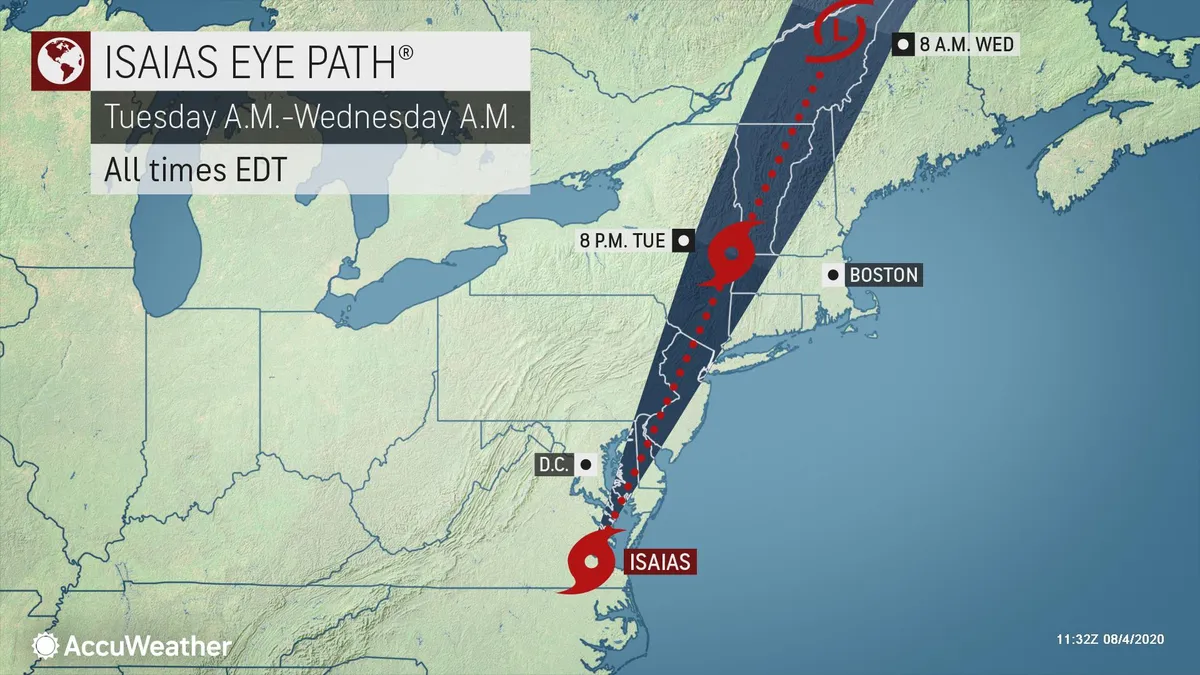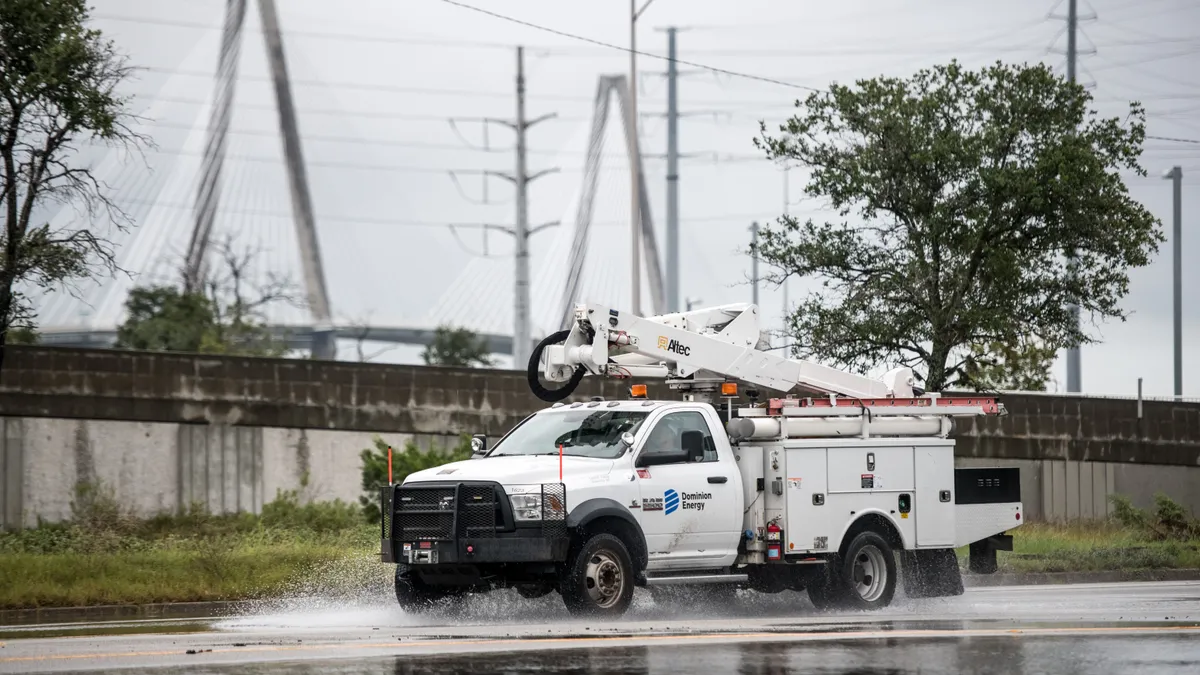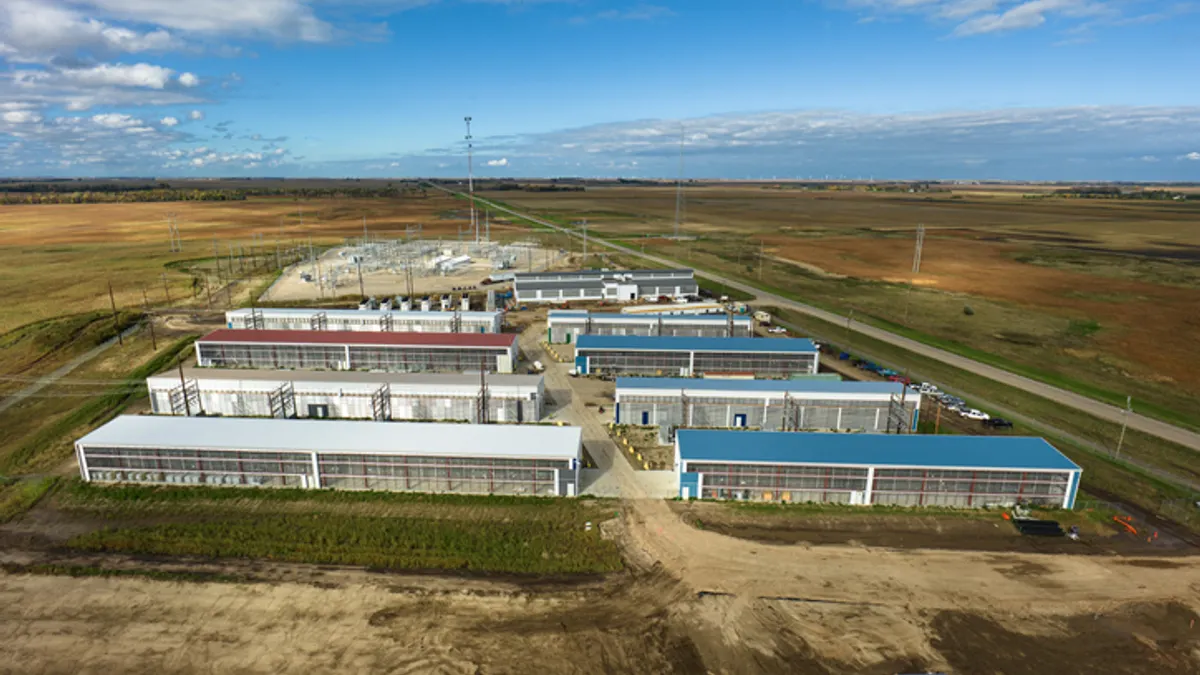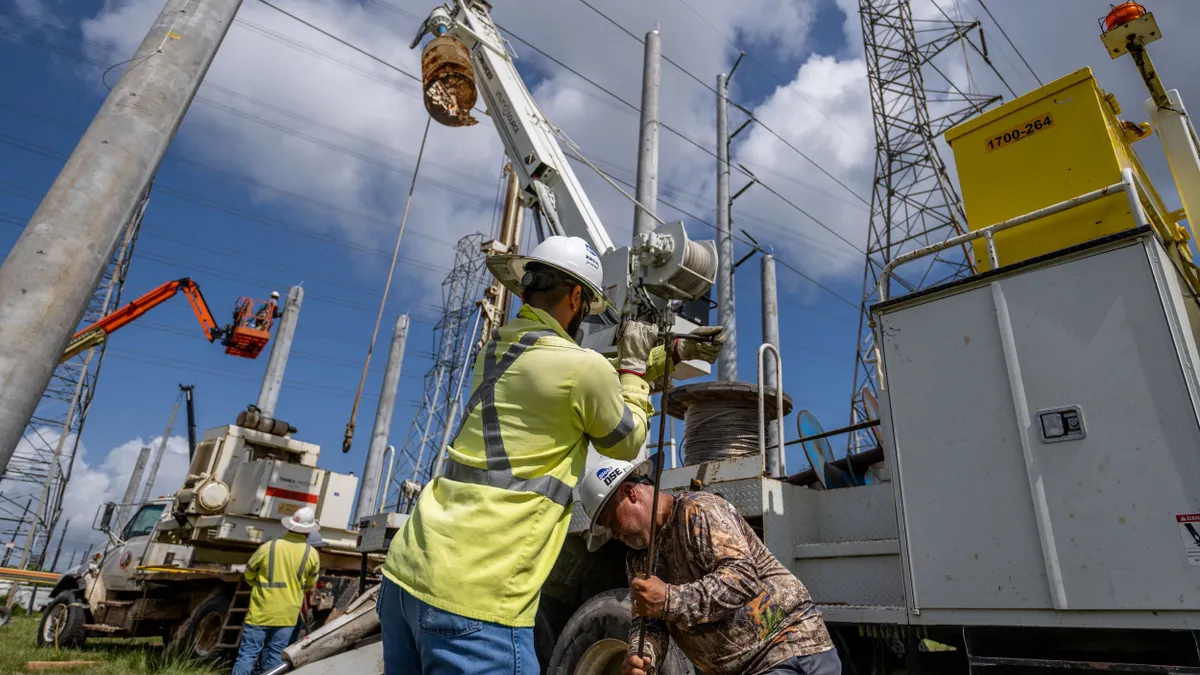A bipartisan group of Connecticut lawmakers on Monday proposed legislation, dubbed the "Take Back Our Grid Act," that would subject Eversource Energy and Avangrid subsidiary United Illuminating to greater scrutiny and possible penalties in the event of power outages that extend longer than two days.
Edison Electric Institute (EEI), which represents investor-owned utilities, warned the law would amount to "wholesale" change in the regulation of Connecticut power companies and could leave the utilities on the hook for damage caused by a natural disaster that would otherwise be considered an "act of God."
According to the National Association of Regulatory Utility Commissioners (NARUC), states approach the issue differently with some allowing customers to recovery some outage-related losses.
More than 800,000 Eversource customers lost power on Aug. 4 during Hurricane Isaias. The utility's response was called "wholly inadequate" by Connecticut Gov. Ned Lamont, D. Approximately 119,000 United Illuminating customers lost service during the storm, according to the smaller utility, and full recovery took about a week.
The proposed legislation would mandate utilities bury some power lines to improve resilience and provide backup generation in some instances. Eversource says it mobilized the largest storm response in Connecticut history following Isaias, but will cooperate with lawmakers "to figure out what can be done better."
Bill envisions penalties for extended outages
Current state law "essentially absolves electric distribution companies from being held liable for costs incurred by citizens during extended power outages," a group of Connecticut lawmakers said in a statement announcing the new legislation. "That must change. Electric distribution companies are a critical infrastructure supplier, and our legislation will hold them liable for any interruption of service."
The legislation would hold electric distribution companies legally liable for outage costs, requiring them to compensate residential customers who lose power and do not have it restored within 48 hours at a rate of $100/day until their power is restored. The legislation would also require utilities to compensate customers up to $500 for medication that expires due to a commercial power outage lasting two days or longer.
"In neither case will the company be able to seek rate recovery for this customer compensation," lawmakers said in their statement.
The proposed legislation would also require electric distribution companies to bury power lines where possible, and mandates the undergrounding of electric lines for new residential, commercial and industrial developments. And for residential customers with critical medical needs, the proposed law would require utilities to provide back-up generation in outages expected to last more than 24 hours.
Lawmakers say the legislation would also bolster the Connecticut Public Utilities Regulatory Authority's (PURA) ability to exercise oversight over the electric companies. PURA last week granted a motion by Attorney General William Tong to open a "trial-like" proceeding to hold Eversource and United Illuminating accountable for their storm response.
"We wanted to announce our intent to bring forth comprehensive legislation to strengthen the hand of PURA in its upcoming investigations of Eversource and United Illuminating regarding recent rate increases," said Rep. Charles Ferraro, R. An upcoming September special session "will provide a good opportunity to provide legislation assisting PURA," Ferraro said.
Eversource Energy, Connecticut's largest utility, was granted a $124.6 million rate hike in April 2018 for system resiliency through 2020, following a $300 million five-year resilience plan implemented in 2013. In July of this year, the utility filed with PURA to extend specific vegetation management programs into 2021 and 2022.
"While we mobilized the largest restoration effort Connecticut has seen in order to get the power back on for every customer, we understand the frustration our customers and political leaders are feeling," Eversource said in a statement. "We'll participate in the regulatory and legislative process to ensure we understand why this storm had such a severe impact, and ultimately to figure out what can be done better."
Law would be 'wholesale change' for Connecticut — but perhaps not all states
EEI indicated passing the legislation would be a mistake. And NARUC said utilities already have incentives to restore power as quickly as possible — though some states do allow for customer reimbursement in the event of outages.
Adam Benshoff, EEI's executive director of regulatory affairs said in an email that electric companies are regulated by state laws to serve all customers in their service territory regardless of where they live. Regulators establish the rules for operating within their states, Benshoff said. These rules socialize the collective costs of delivering electricity across all customers to ensure electric service is affordable for everyone.
"These laws and policies also determine whether companies are at fault for an outage or whether an 'act of god' was responsible," Benshoff said.
The legislation proposed in Connecticut would "lead to an unfortunate wholesale change in the regulatory regime in Connecticut," he said.
NARUC in a statement said that based on a survey of its members it would "not be entirely accurate to say that utilities have no accountability for outages."
"It's customary for states to evaluate utilities' performance after major storms and in many instances, fines can be levied and other actions taken against utilities if it's determined that they did not meet performance standards," the group said.
In Virginia, NARUC said utility companies have an incentive to restore power as quickly as safety allows. "The meter does not turn if electricity is not flowing," the group said. "So, other than the basic monthly charge, the monthly bill will reflect any hours or days when electricity was not flowing."
Outages of a certain length are entitled to bill credit in Michigan.
In Washington customer service guarantee programs are company-specific, according to NARUC. Any food or appliance losses caused by an outage are not covered by utility tariffs, though customers can take action in small claims court if they choose.
For Pennsylvania customers, expenses generally associated with a major storm, such as perishable food and medicine, would normally be tracked, amortized, and the rates for recovery would be addressed in a subsequent rate case.
"Such cost recovery mechanisms are normally applicable only for major storms" in Pennsylvania, NARUC said. "However, there are newer mechanisms, such as storm trackers, that may provide for other methods of recovery."























